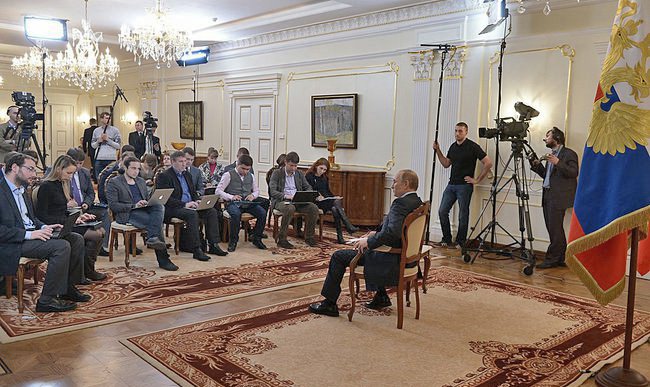
By Jason Patrick
As Russian forces completed their take over of the last Ukrainian military base in Crimea today, Western nations took another punitive step in the hopes of isolating Moscow. Thus far, Russia has responded to US and European sanctions with derision and disdain to maintain the appearance of nonchalance. Although BBC reported discussions of a future Europe that could begin to wean itself from its Russian petroleum dependence, Moscow’s bravado may rest on solid ground. In response to the G8’s decision to bar Russia from the group for the violation of Ukraine’s sovereignty, Russian Foreign Minister, Sergey Lavrov snubbed the announcement, pointing out that as an informal forum, Russia’s invitation to leave is “no great tragedy“. In so much as the decision will bear on Moscow’s hold on Crimea, he is probably right.
International media outlets have consistently highlighted that sanctions targeting Putin’s inner circle and others directly connected to the crisis in Ukraine are largely symbolic. Although they may be part of a layered approach to gradually apply pressure, there are limits that will ultimately prove them ineffective. Russian money in foreign capitals and the domestic pressures likely to mount against heads of state attempting to levy meaningful sanctions certainly factor into President Putin’s calculus as he weighs his next move.
In Europe, Germany is taking an incrementalist approach to applying pressure. Chancellor Angela Merkel’s approach endeavors to create exits with each punitive step to avoid painting Moscow into a corner that force it to lash out with political countermoves detrimental to Germany. According to a report published by Stratfor, oil and natural gas account for approximately 70 percent of all Russian exports. Of its total exports to Germany, nearly the same percentage also comes from oil and natural gas. If Merkel were to take the drastic step of placing an embargo on Russian petroleum, Germany would likely not face shortages, as it could make up the deficit by increasing imports from Algeria, Norway, and Nigeria–albeit at a premium, according to a report cited in The Economist. However, Putin would almost certainly respond in kind with a similar cessation, endangering approximately 300,000 German jobs that depend on exports to Russia. As pointed out in the same article, Merkel may not be able to withstand the resulting pressure from her country’s business elite.
Although not beholden to Moscow for energy, the United Kingdom has financial interests in maintaining positive relations with Russia that may blunt its political edge. Russian wealth has long resided in London in diverse areas such as real estate, investments, and “investor visas”, according to another article in this week’s The Economist. By investing 1 million pounds (approximately 1.65 million USD) in government bonds, foreign citizens can obtain three-year visas to the UK. After a two-year period and for an additional 10 million pounds, those individuals can buy residency. Between 2008 and 2013, the UK granted 433 such visas to Russian citizens. Approximately 46 billion USD in Russian stocks have been sold London IPOs since 1996, according to stats cited in the same article. While Russian oligarchs would likely be piqued at having their assets frozen in or shunned by London, they would likely just divert them to other less stringent places like Hong Kong or Dubai. Finally, as the UK’s British Petroleum (BP) owns around 20 percent of Russia’s state-owned Rosneft’s shares, sanctions targeting Russian oil would also slice into the profits of its own domestic business interests.
The United States faces a similar conundrum with its domestic energy sector. Banning US companies from doing business in Russia would no doubt have a damaging effect on the Russian economy, as companies such as ExxonMobile have increased their operations in Russia over the past decade. According to information cited in Stratfor, ExxonMobile signed multiple agreements in 2012 for tens of billions of dollars. Included in these agreements are joint ventures in the United States that will benefit Russia by improving their own technology and by increasing their capacity to recover resources from difficult reservoirs. This will become increasingly important as countries lay claim to resources beneath the polar ice caps. However, a government ban on cooperating with Russia will significantly affect many US companies’ bottom line, which will result in increased pressure on Congress to resist the same severe measures that might give President Putin reason to pause.
Given these inherent limitations on meaningful Western action, President Putin will continue on the course he has set for his country. Although Foreign Minister Lavrov met with his Ukrainian counterpart today in the Netherlands, Moscow will remain reluctant to officially recognize the new government, opting perhaps to dangle recognition as a bargaining chip for pledges from Kiev to relinquish its claim on Crimea, or to use its “illegitimacy” as a pretext for annexing greater portions of eastern Ukraine when international attention inevitably wanes. For the foreseeable future, as long as the US and NATO continue to openly eschew a military deterrent, Moscow will remain immune from international opprobrium and will act from a position of relative power.




